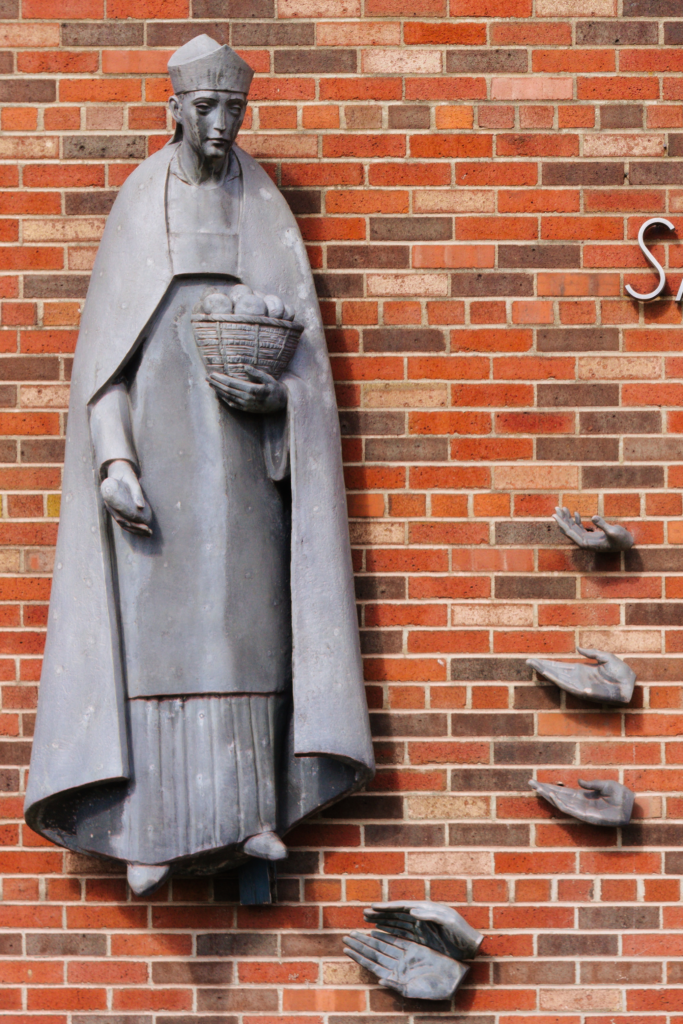The Alan Sundry Show. Special guest Mary Ellen Sheets, co-founder of the Two Men and a Truck franchised moving company, recalls the many failed business formulas that preceded her runaway success, including Two Trucks and a Man; Five Girls, One Raccoon, and a Harmonium; Ten Lords a-Leaping; Two Beagles and Eight Hundred Fleas; A Studebaker Lark with Nobody in It at All; and One Middle-Aged Mom Selling Franchises. 9 p.m. (8 Central, 10:23 Newfoundland).
A SUGGESTION.
SAFETY INSTRUCTIONS.






MICROSOFT INVENTS THE EM DASH.
So at last Windows has an em dash! But only for special people.
Right now, the article explains, em dashes are still an experimental feature. Microsoft is not sure that all the bugs have been worked out yet; who knows whether a Windows-generated em dash might suddenly turn into an ampersand or a guillemet or a less-than-or-equal-to sign? You have to be a Windows Insider to have access to the experimental em dashes, and you have to have the right Windows Insider build, and even then you have to download a special program that allows you to change certain invisible settings in the Insider build of Windows, and then run that program, and then look in the obscure settings and find the one that allows you to type an em dash by typing
But if the beta-testing gods send favorable omens, the em dash will eventually make it into the standard builds of Windows. With this amazing innovation, Windows users will at last be able to counter the long-resented Mac-user boast that Apple has superior em-dash technology.
Still no word on when Windows users will have access to proper apostrophes and quotation marks, but Microsoft moves deliberately.
Also no word yet on when the new em-dash capability will be removed in a mandatory Windows update.
At any rate, it is probably a bad idea for Windows users to place too much faith in a Microsoft em dash. If Microsoft invents an em dash, we can expect it to be bloated, inefficient, and unreliable, taking up most of your computer’s CPU cycles, with a significant chance of catastrophic data loss. Windows power users will continue to use their own kluges to produce em dashes; Linux users will continue to use their own homemade keyboard layouts, because the keyboard layout is just a text file. Meanwhile, the publishing industry will continue to prefer Apple, because Apple at least makes elementary concessions to typography.
WRITING PROMPTS.
Think about the first time you ever became aware of the color yellow. How did it make you feel?
You are lieutenant governor of a moderately prosperous state. How will you become governor without waiting three dreary years for the next election?
Take all the familiar characters from Egyptian mythology and reimagine them as executives of a regional supermarket chain.
What if George Washington had never signed the Declaration of Independence? —Wait—you mean he didn’t?
Imagine a world without popcorn.
You are the first human being to set foot on Mars and return to earth. For which products will you sign endorsement deals, and why?
Within a decade or two, all creative work, including writing, will be done by artificial intelligence, and human beings will be valuable only for their dexterity in moving packages from one part of the warehouse to another. How do you feel about that?
Advertisement.
THE BLONDE AND THE FECKLESS.
Announcer. And now Brenneman’s Whole-Body Soap, the soap that replaces sixteen different anatomically specific soaps, presents…
(Music: Tinkly piano introduction.)
Announcer. Episode four hundred twenty-eight thousand two hundred thirty-six of The Blonde and the Feckless, created by Eusebius of Caesarea.
(Music: Theme: tinkly piano on a pillow of strings, fades under for…)
Announcer. As you recall, in yesterday’s episode, Emerson and Eleutheria were sitting at the bar in the Hard Luck Inn when Eleutheria said…
Eleutheria. I can take care of myself, you know. You’re not my dad. Or my mom. Or my Aunt Winifred. Or my second cousin once removed who lives in a trailer park in Clearwater. I’m an adult now. If I want to get drunk, I can get drunk. If I want to marry a ninety-four-year-old Russian nobleman who can’t put on his own socks, I can do that, and no one can stop me.
Emerson. I’m not trying to be your dad, and I wouldn’t know how to be your second cousin once removed. I’m just your friend. But remember that time you told me you’d always trust my judgment?
Eleutheria. You mean the time I ran into you in Genoa while you were on the trail of the jewel thieves who stole your identity and framed you for jaywalking and racked up a twenty-thousand-dollar Candy Crush Saga bill and you rescued me from drowning in the fountain after pirates had drugged me and dropped me from the mezzanine level of the Teatro delle Zucchine?
Emerson. Well, I guess you said it then, too, but I was thinking of the time I found you alone and scared in a vintage hat shop in Kinshasa and we had to disguise ourselves as Jehovah’s Witnesses to get past the perfume counter in the department store on the way out of the mall. You told me you would always trust my judgment, and I said I would try to make my judgment worthy of your trust. So…
Eleutheria. So what are you trying to say?
Emerson. I guess what I’m saying is, we’ve been sitting on these barstools having this conversation for five and a half weeks now, while the other characters’ plots have been advancing all around us, so I guess it’s time for me to ask the question I’ve been wanting to ask this whole time.
Eleutheria. It’s over there down the hall next to the kitchen.
Emerson. No, that’s— Well, yeah, I am going to want to use it in just a minute. But what I want to ask is, why are you really marrying the Count? Is it just to get back at Ethan for dumping you after you put a dent in his 1974 Monte Carlo while you were being chased by Peruvian alpaca kingpins in Kuala Lumpur?
Eleutheria. Well, what if it is? I can do what I want. Anyway, there’s more to it than that. Maybe I like older men.
Emerson. What I really mean to say, Eleutheria, is… Why are you marrying the Count when you could have me?
Eleutheria. Oh, Emerson! That’s so sweet! And I do really like you. So call me when you get a private jet and a superyacht and a dacha that covers an entire autonomous oblast, and we’ll talk.
Emerson. Well, I didn’t want to do this, but I guess it’s time to tell you what I found out about the Count.
Eleutheria. What do you mean?
Emerson. He didn’t really make his fortune in the organic-puffed-wheat business, you know. His company sold breakfast cereals to children with bright artificial colors and preservatives you can’t even pronounce.
Eleutheria. Well, even artificially colored children have to eat.
Emerson. I mean the cereals were artificially colored, not the children.
Eleutheria. You’re a liar! Alexei would never do that! I can’t believe you’d try to ruin my wedding with such utter codswallop! I never want to speak to you again!
(Sound: Splash, loud footsteps, slamming door.)
Emerson. Why, Eleutheria, you threw your drink in my face! And it made a sound like a bowling ball hitting a swimming pool, because that was all the effects guy could come up with! And then you stomped out and slammed the door! And now I’m sitting here alone and wet and talking to myself, because the bartender went home four and a half weeks ago!
Announcer. Will Emerson ever recover from the heartbreak of Bloody Mary stains all over his immaculately pressed white jacket? Tune in tomorrow for the next installing enthrallment of The Blonde and the Feckless!
(Music: Theme, in and under for…)
Announcer. Friends, are you tired of juggling sixteen different specialized soaps for different body parts every time you go into the shower? It’s more than inconvenient—it’s dangerous. Many injurious bathtub falls are related to mishandled soaps. Try Brenneman’s Whole-Body Soap, the soap that works on more than just your hands. It’s the only soap you need! Well, that and your shampoo. And conditioner. And a body rub for afterward. All from Brenneman’s of course. Brenneman’s Whole-Body Soap—the soap that replaces sixteen other anatomically specific soaps! Ask your druggist if he carries Brenneman’s products and beat him senseless if he doesn’t.
(Music: In full, then out.)
FROM THE ILLUSTRATED EDITION.
ST. PAMPHILUS OF SULMONA IN RELIGOUS ART.


Let’s all give him a hand.

The hands are clearly meant to represent the hands of the poor receiving St. Pamphilus’ charity. It is only Dr. Boli’s defective mind that makes him think of the Belgian Congo every time he sees this sculpture.
For readers in the Pittsburgh area, St. Pamphilus Church now belongs to the Our Lady of Victory Maronite congregation, which is having its annual Lebanese festival today and tomorrow. St. Pamphilus of Sulmona, famous for distributing bread and eating his meals with his poor parishioners, would approve of a Lebanese food festival.

Pictures from Father Pitt.


